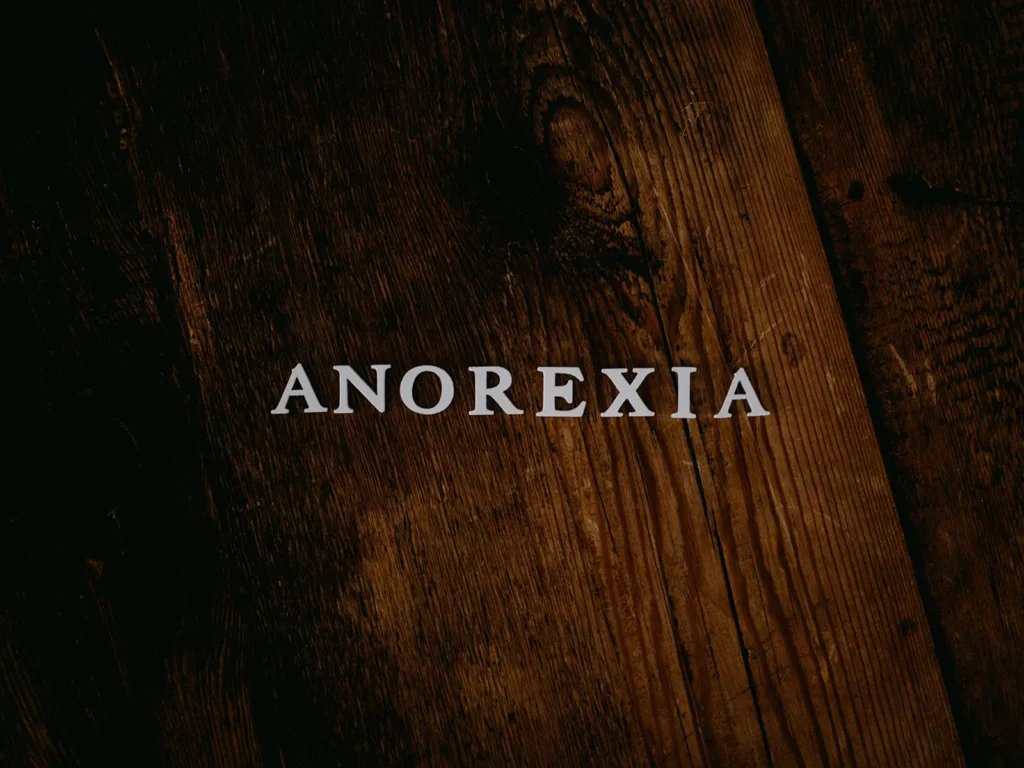
Women’s mental health is a crucial and multifaceted aspect of overall well-being that deserves significant attention and care. As a gender, women face unique challenges and experiences that can have a profound impact on their mental wellbeing. From biological factors like hormonal fluctuations to social and cultural influences, understanding and addressing women’s mental health is essential for promoting healthier and happier lives.
The prevalence of mental health challenges among women is a pressing concern that cannot be ignored. According to studies, women are more likely than men to experience conditions such as anxiety disorders, depression, and eating disorders. Additionally, life events like pregnancy, postpartum, and menopause can bring forth significant emotional and psychological changes, underscoring the importance of specialized care during these stages.
Gender-specific factors play a pivotal role in shaping women’s mental health journeys. Societal expectations, roles, and norms can create unique pressures and stressors, affecting self-esteem, body image, and overall psychological well-being. Addressing these gender-specific aspects is crucial to breaking down stigma and ensuring women have access to tailored support and resources.
Common Mental Health Issues Faced by Women
Anxiety Disorders
Anxiety disorders are prevalent among women, with higher rates of generalized anxiety disorder, panic disorder, and social anxiety compared to men. The pressures of juggling multiple roles, such as career, family, and societal expectations, can contribute to feelings of overwhelm and constant worry. Women may experience physical symptoms like restlessness, muscle tension, and difficulty concentrating, impacting their daily functioning and quality of life.
Eating Disorders
Eating disorders, such as anorexia nervosa, bulimia nervosa, and binge-eating disorder, disproportionately affect women. Societal emphasis on appearance and body image can contribute to body dissatisfaction and lead to disordered eating patterns. These disorders can have severe physical and psychological consequences, underscoring the need for early intervention and support.
Trauma and PTSD
Women are more likely than men to experience trauma, often related to sexual assault, domestic violence, or childhood abuse. Traumatic experiences can lead to post-traumatic stress disorder (PTSD), causing intrusive thoughts, nightmares, and emotional numbing. Creating a safe and supportive environment for survivors is crucial for their healing journey.
Depression
Depression affects women at nearly twice the rate of men. The hormonal fluctuations during the menstrual cycle, pregnancy, and menopause can influence mood changes. Additionally, societal expectations and cultural norms may discourage women from expressing their emotions openly, leading to feelings of isolation and worsening depressive symptoms.

Postpartum Depression and Anxiety
The postpartum period can bring joy, but it can also trigger significant mental health challenges for women. Postpartum depression and anxiety can occur after childbirth and affect up to one in seven women. Hormonal changes, sleep deprivation, and adjusting to new roles as a mother can contribute to feelings of sadness, guilt, and fear.
Body Image and Self-Esteem Concerns
Women are frequently bombarded with unrealistic beauty standards, which can impact body image and self-esteem. Negative body image is associated with psychological distress and disordered eating patterns. Building a positive self-image and promoting body acceptance can foster better mental health outcomes.
It is essential to recognize and understand these common mental health issues faced by women. By breaking down barriers, promoting open conversations, and offering specialized support, we can help women navigate their mental health journeys with greater resilience and empowerment. If you or someone you know is experiencing mental health challenges, seeking professional help is a crucial step toward healing and well-being.
Recognizing Signs and Symptoms

Physical Symptoms
Mental health issues can also manifest in physical symptoms. Women may report unexplained physical pain, headaches, or digestive problems without any apparent medical cause. Fatigue and changes in sleep patterns, such as insomnia or excessive sleeping, can also signal underlying mental health concerns.
Impact on Relationships and Daily Functioning
Mental health issues can strain relationships with family, friends, and colleagues. Women may withdraw from social interactions, avoiding activities they once enjoyed. They may also experience difficulties in maintaining focus and productivity at work or school. Additionally, impaired decision-making and a sense of detachment from reality can further hinder daily functioning.
Emotional and Behavioral Signs
Women may experience a wide range of emotional and behavioral changes when facing mental health challenges. They might display persistent sadness, irritability, mood swings, or emotional numbness. Feelings of hopelessness, worthlessness, or guilt can be common, affecting their ability to find joy in daily activities.
Cognitive and Thought Patterns
Distorted thought patterns are prevalent in mental health challenges. Women may experience excessive worrying, intrusive thoughts, or difficulty concentrating. Negative self-talk and self-criticism can erode self-esteem, contributing to feelings of inadequacy.
It is crucial to recognize these signs and symptoms promptly, as early intervention can lead to better outcomes. Encouraging open communication and providing a supportive environment can facilitate the identification of mental health challenges. Friends and family can play a significant role in observing changes in behavior and emotions and encouraging women to seek professional help when needed. Remember that reaching out for support is a sign of strength, and seeking guidance from mental health professionals can provide the necessary tools for healing and coping effectively with mental health challenges.
Coping Strategies and Self-Care Practices
Prioritizing Self-Care and Wellness
Encouraging women to prioritize self-care is essential for maintaining mental well-being. This includes setting aside time for activities that bring joy and relaxation, such as hobbies, reading, or spending time outdoors. Adequate sleep, a balanced diet, and regular exercise also contribute to overall well-being.
Engaging in Stress-Reducing Activities
Encouraging women to engage in stress-reducing activities can help alleviate mental health challenges. Whether it’s practicing yoga, taking a walk, or participating in creative pursuits, these activities can provide a sense of calm and promote emotional well-being.
Mindfulness and Meditation Techniques
Practicing mindfulness and meditation can be beneficial for women’s mental health. Mindfulness involves being fully present in the moment, accepting thoughts and feelings without judgment. Regular meditation can reduce anxiety and promote a sense of clarity and balance.

Establishing Healthy Boundaries
Setting healthy boundaries in personal and professional relationships is crucial for women’s mental health. Learning to say no and valuing one’s own needs and limitations can prevent emotional burnout and reduce stress.
Seeking Support from Supportive Networks
Encouraging women to reach out to supportive networks, such as friends, family, or support groups, is vital for their mental health. Sharing feelings and experiences with trusted individuals can provide comfort, understanding, and validation.
Seeking Professional Help
If women are struggling with mental health challenges, it is essential to seek support from mental health professionals. Licensed therapists or counselors can provide guidance and therapy tailored to individual needs. Additionally, psychiatrists can prescribe medication when necessary to help manage symptoms effectively.
The Role of Mental Health Professionals
Mental health professionals play a crucial role in supporting women’s mental well-being. Psychologists, therapists, counselors, and psychiatrists are trained to provide a safe and non-judgmental space for women to explore their emotions, thoughts, and concerns. These professionals offer evidence-based interventions and personalized treatment plans to address various mental health challenges. By fostering a trusting therapeutic relationship, mental health professionals empower women to navigate their emotions, build coping skills, and work towards achieving mental and emotional balance.
Finding the Right Therapist or Counselor
Finding the right therapist or counselor is essential for effective mental health care. Women should consider factors such as expertise, specialization, therapeutic approach, and personality when seeking a mental health professional. Trusted referrals from friends, family, or healthcare providers can be valuable in the search process. Additionally, online directories and mental health organizations can provide valuable resources to help women find a therapist or counselor who best suits their individual needs and preferences.
The Benefits of Therapy and Counseling for Women
Therapy and counseling offer numerous benefits for women’s mental health and well-being. In a supportive and confidential setting, women can explore their emotions, gain self-awareness, and develop healthier coping strategies. Therapy can help women address trauma, manage stress, improve relationships, and work through challenges such as anxiety, depression, or body image concerns. It provides a space to process experiences, set goals, and foster personal growth. By investing in therapy or counseling, women can experience a positive impact on their overall quality of life and cultivate the tools to navigate life’s ups and downs with resilience and self-empowerment.
Addressing Specific Life Stages and Challenges
Navigating life’s various stages and challenges is an essential aspect of women’s mental health. From the transformative journey of pregnancy to the complexities of work-life balance and relationships, women encounter unique emotional landscapes.

Mental Health During Pregnancy
Pregnancy is a transformative and emotional journey that can have an impact on women’s mental well-being. Hormonal changes, physical discomfort, and anxieties about childbirth and parenthood can contribute to mood fluctuations. Seeking prenatal mental health support is essential to address concerns, reduce stress, and ensure a healthy pregnancy. Mental health professionals can provide guidance and coping strategies to manage emotional challenges during this critical life stage.
Postpartum Mental Health
Postpartum mental health issues, such as postpartum depression and anxiety, are common and can affect women after giving birth. The challenges of adjusting to motherhood, sleep deprivation, and hormonal shifts can exacerbate these conditions. Early identification and treatment are vital to support women in navigating this delicate phase and building a healthy bond with their newborn. Counseling and support groups can offer validation, coping tools, and reassurance to women experiencing postpartum mental health challenges.
Menopause and Mental Health
Menopause is a natural phase marking the end of a woman’s reproductive years. Hormonal changes during menopause can trigger emotional shifts, including mood swings and anxiety. Women experiencing menopause may also encounter sleep disturbances and physical symptoms that impact their mental well-being. Seeking mental health support can help women cope with these changes and manage any emotional challenges that arise during this life stage.
Coping with Work-Life Balance
Balancing career and personal responsibilities can be a significant challenge for women. Juggling work, family, and self-care can lead to stress, burnout, and feelings of overwhelm. Mental health professionals can help women develop effective time management skills, set boundaries, and explore strategies to create a more balanced and fulfilling life.
Navigating Relationship Issues
Relationships play a central role in women’s lives, and challenges in personal or romantic relationships can have a profound impact on mental health. Couples therapy or individual counseling can assist women in addressing communication issues, conflicts, and emotional dynamics within their relationships. Learning healthy communication skills and building emotional resilience can contribute to more satisfying and harmonious connections.

Addressing these specific life stages and challenges through mental health support empowers women to navigate life’s transitions with resilience, emotional well-being, and a strengthened sense of self. It offers a valuable opportunity to explore personal growth, enhance coping skills, and promote a positive and fulfilling life journey.
Breaking Stigma and Promoting Open Dialogue
Breaking the stigma surrounding women’s mental health is essential to fostering a culture of understanding and empathy. By promoting open dialogue, challenging societal norms, and building supportive communities, we can create an environment where women feel empowered to prioritize their mental wellbeing.
Encouraging Open Discussions about Mental Health
Creating a safe space for women to talk openly about their mental health experiences is crucial. By encouraging honest conversations, we can reduce feelings of isolation and provide much-needed support and validation. Sharing personal stories can be a powerful way to foster connection and empathy among women facing similar challenges.
Challenging Societal Stigmas and Norms
Societal expectations and stigmas often contribute to the silence surrounding women’s mental health issues. By challenging these norms, we can help dismantle barriers that prevent women from seeking help. Empowering women to prioritize self-care and mental health destigmatizes seeking support and promotes overall wellbeing.
The Power of Supportive Communities and Advocacy
Creating supportive communities and fostering mental health advocacy can have a transformative impact. When women come together to support each other, they form a network of understanding and empathy. Additionally, advocating for women’s mental health on a larger scale helps raise awareness and promotes positive change in societal attitudes.
Take Control of Your Mental Health
Prioritizing women’s mental health is a crucial step towards overall wellbeing and empowerment. Understanding the unique challenges that women may face and recognizing the impact of societal expectations can help break down barriers to seeking support. By fostering open dialogue, challenging stigmas, and building supportive communities, women can find solace and understanding during difficult times.
It’s essential for women to remember that seeking help is a sign of strength, not weakness. Giving yourself grace during challenging moments and acknowledging that mental health is a journey can lead to self-compassion and healing. Remember, you don’t have to navigate this path alone; there are supportive resources, mental health professionals, and communities ready to offer understanding and guidance.
Taking the first step towards prioritizing mental health can pave the way for personal growth, resilience, and empowerment. Embrace the journey, seek help when needed, and remember that you deserve to prioritize your mental wellbeing. By doing so, you contribute to a world where women’s mental health is valued and nurtured, creating a more compassionate and supportive society for all.










